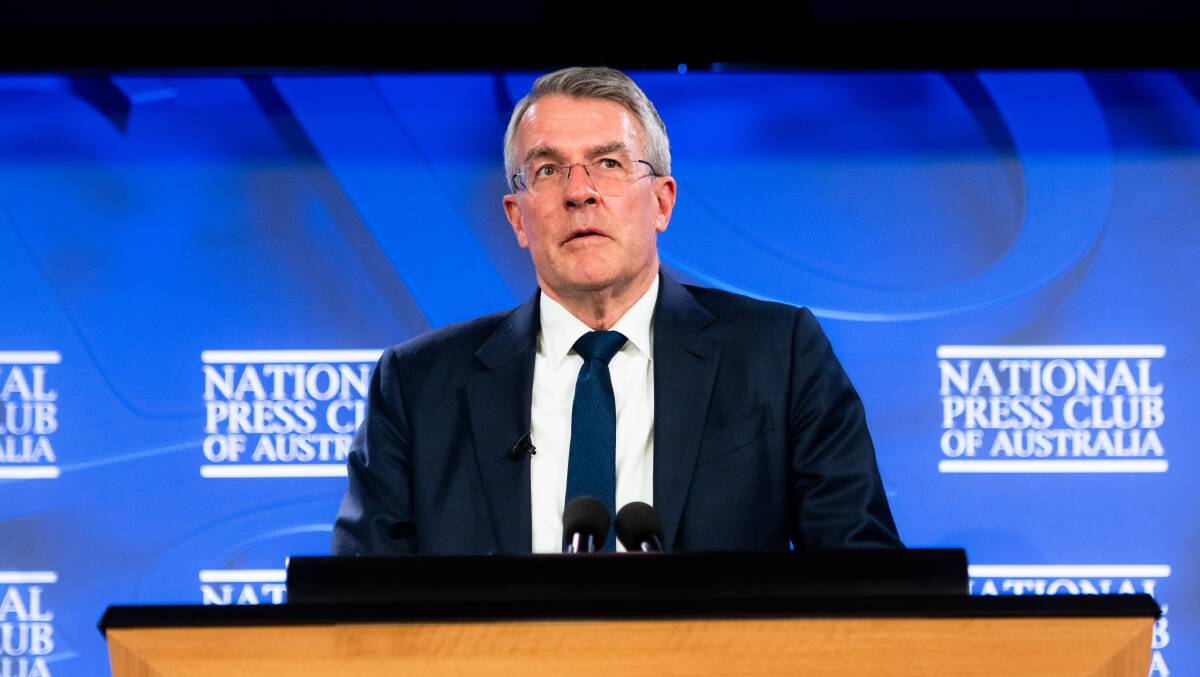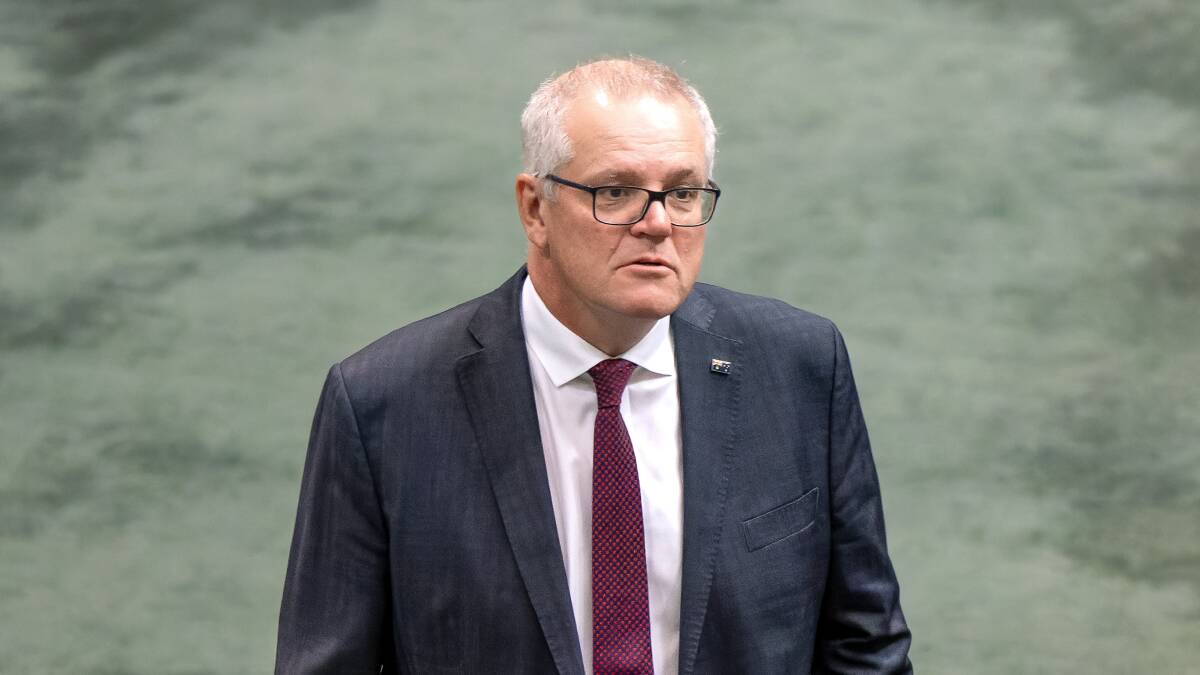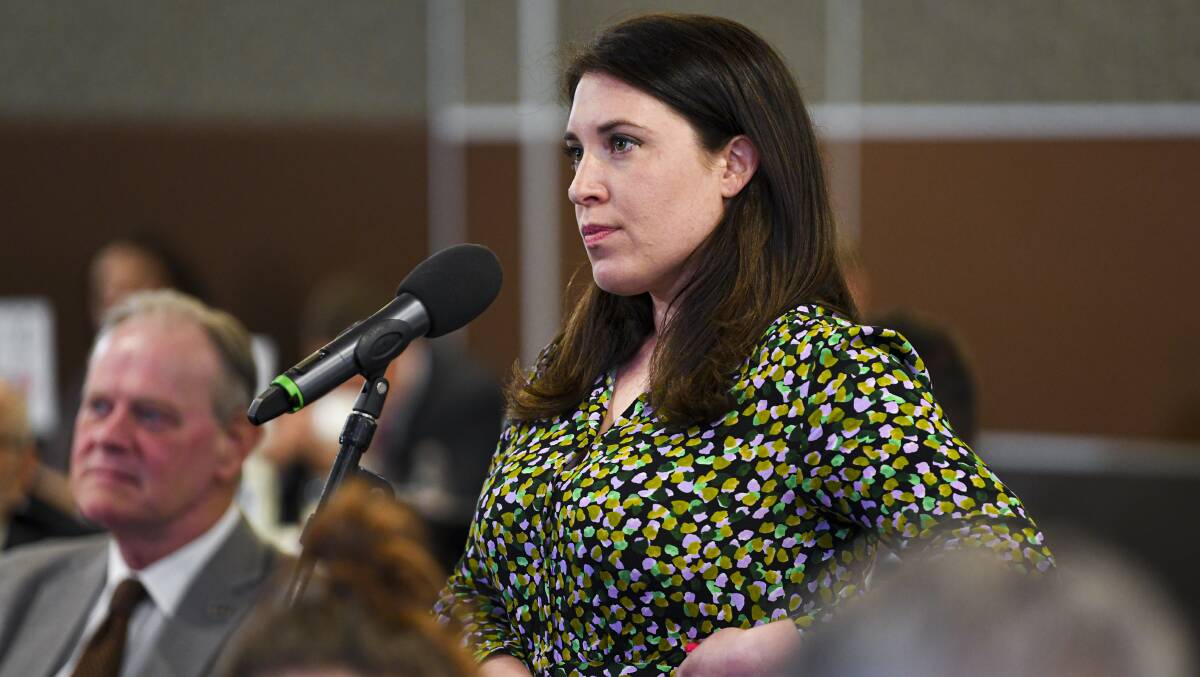An explosion in the use of third-party contractors for public service work under the Coalition posed a serious corruption risk, a parliamentary inquiry has heard.
Subscribe now for unlimited access.
$0/
(min cost $0)
or signup to continue reading
A committee on Labor's proposed National Anti-Corruption Commission, sitting for its third day, has also been warned already depleted police resources may be stretched even further to aid the new body.
And media representatives have also warned whistleblowers could be exposed by threadbare protections in the legislation, undermining journalists' ability to launch public-interest investigations.
The former Coalition government oversaw a huge uptick in the number of private contractors hired for work traditionally carried out by the public service.

Corruption risk
Osman Chiu, from the Community and Public Sector Union, on Thursday said he was buoyed by Labor's NACC model covering private contractors, warning the previous regime had opened the door for corruption.
Mr Chiu said members had reported that contractors were "extensively used" without a competitive process, including in higher-level roles while "pushing out existing APS staff".
He cited the Coalition's attempts to privatise the visa processing system, which he said would have created a "privatised monopoly".
"Thankfully it didn't occur ... [but] there were only two bidding consortiums selected to participate for a limited tender, but both of whom had known extensive links to the then-government," he said.
"If it had gone through, the winning consortium would have been set to pocket billions of revenue annually."
Under the government's model, the NACC would conduct public hearings only in "exceptional circumstances", and when they would be in the public interest.

That provision has sparked concern among independent crossbenchers, who have warned the threshold was prohibitive and the wording too vague.
Alex Caruana, Australian Federal Police Association president, said the term needed to be clarified to ensure it did not morph from its original intent.
Police advocates were angered by the Coalition's proposal, which would have exposed officers to public hearings but exempted politicians and their staff.
Mr Caruana agreed with suggestions the phrase "exceptional circumstances" could be used to simply cover misconduct by uniformed officers, a de facto reversion to the Coalition's model.
"Exceptional circumstances could [end up] being for police officers only, and not for other public officials," he said.
"We would like to see exceptional circumstances definitely linked across the board to any public official."
READ MORE:
Mr Caruana warned AFP resources were already "stretched", particularly in the ACT, and wanted clarity on the resources the NACC needed to conduct investigations.
"It's going to be difficult to quantify until we know exactly what the remit of the NACC is going to be," he said.
"If it's going to be running at the current model ... then as the commission grows and the remit of the commission grows, it's going to be drawing down on resources from the AFP, and taking away their ability to do some other investigation."
'Two-edged sword'
The model allows for the commissioner to launch investigations based on media reports, and the government has argued it has in-built protections for public interest journalism.
But representatives from media advocacy groups and outlets aired their concerns over the legislation, which they said did not ensure whistleblowers would be protected from investigations launched by the commission.
A whistleblower speaking to the media, on the proviso their identity would be protected, could provide information prompting an investigation, the committee heard.

"We need to appreciate the fact that the one of the reasons why the media is able to report on those issues, is because of the importance of keeping sources confidential," Liberal senator Paul Scarr said.
Grant McAvaney, from Australia's Right to Know, was concerned the legislation would create a "two-edged sword" for journalists and whistleblowers, who could be targeted by warrants their work helped initiate.
"It's the front page of the paper or the Four Corners broadcast ... that draws attention to the issue," he said.
"The flip side is, it's an acknowledgment that it's the media that might have the information."
Mr McAvaney warned a journalist's promise not to identify the whistleblower, regardless of whether they were legally compelled to do so, was "usually the best" guarantee they could receive.
But it was "virtually impossible" to protect the identity of sources once warrants had been issued for communications like texts or emails, he said.
"So we would say that the protection for journalists is a protection for the whistleblower themselves, as well," he said.
Media, Entertainment and Arts Alliance deputy chief executive Adam Portelli warned, while the bill provided "some protections", it still fell "short of what is required".
Mr Portelli cited 2019 police raids on the Canberra home of journalist Annika Smethurst and the ABC's Sydney headquarters as evidence of authorities targeting valid journalism.
"These raids were conducted in response to news stories. These stories were true; they were published in the public interest," he said.
"However, they might have embarrassed the government of the day."
Free TV Australia's Bridget Fair was concerned journalists could "become an arm of the commission by virtue of our own investigative activity".


